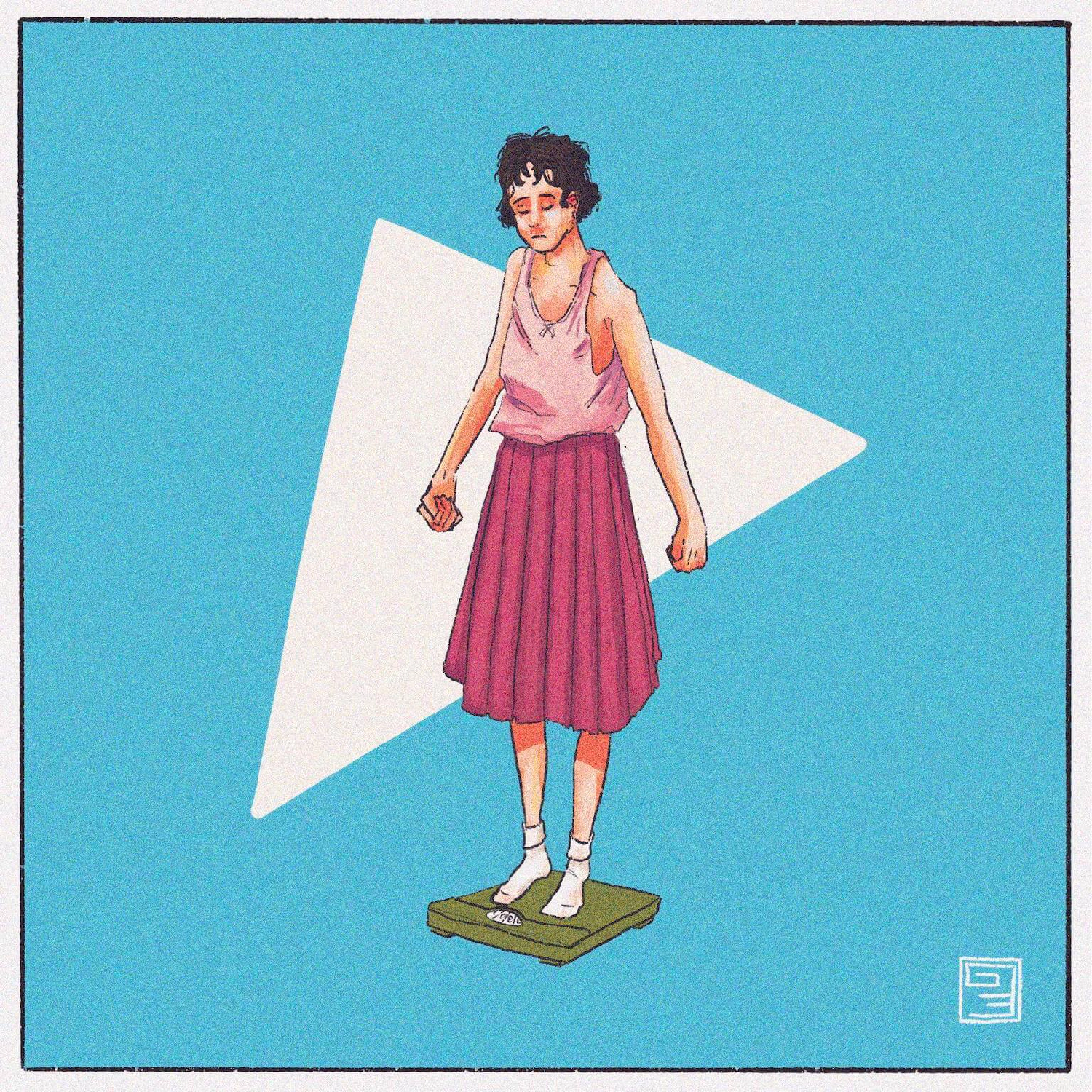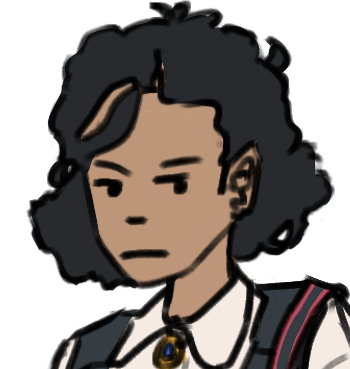NEW Story: Sunday Morning
Lighter Than Her Shadow

This article is not part of Vekllei canon. It may be old, obsolete or just a bit of fun.
Zelda, for all her outward timidity and mousiness, was mostly self-assured. In the same way that a child is self-assured, in which there is no real epistemology of the self as adults know it. Zelda never grew up to become a real teen-ager, after all — her body is forever thirteen-and-a-half, despite her mature and maternal disposition — and so she had a reckless sort of confidence that never really doubted the premise of her existence.
She did have many weaknesses, however, and she was very conscious of them. They were almost too many to count. The biggest of them, aside from her blatant neurodivergences, was her inability to keep weight on. In her first few months in Vekllei, her skinny frame was symptomatic of her malnourishment in the States. Then, as she struggled to stay above thirty kilos, it became a question of eating habits. Finally, the question was asked — did she have some sort of problem, here? And if so, was it something to do with Gregori syndrome, the comfortable answer? Or was it something more complex — perhaps an eating disorder?
Aside from her small portions, she did not indicate much in common with other girls her age who struggled with image. In fact, much of physical self-loathing was directed at her thinness, which only emphasised her childish lack of figure and breastlessness. The only times Zelda ever cried over a mirror was when she saw her own scrawny frame that a healthy diet should have been able to remedy. Yet even when she pushed herself, and choked down a second serving, it seemed to hardly make a difference. It was a cycle that would haunt her for a long time, until the age when Gregori women must learn to accept their girlishness in place of traditional ideas of beauty.
Whatever the case may have been, Zelda has never weighed more than forty kilos except in a winter coat, and she can still count her ribs in bath. What has changed — in a most wonderful way that alleviates much of her suffering — is her ability to love herself, and understand the limitations of her condition. Considering the fact that she has done so much, and despite her childlessness has mothered many boys and girls to adulthood, priorities shift and the importance of beauty fades. She spends more time today being the best Zelda she can be rather than worrying about her image. After all, image is a loser’s game in the life of a Gregori baby. Happiness is only ever found within.
